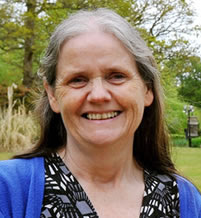New Who’s Who records added to the occupational records on TheGenealogist
TheGenealogist has released New Who’s Who records into its expanding Occupational Records adding nearly a hundred thousand additional individuals. This release includes records covering individuals from all over England, Scotland, Ireland, Canada, USA, New Zealand and further afield.
The records can be used to discover more about an ancestor’s achievements and are fantastic for identifying where next to apply your research. Who’s Who records will confirm birth dates and sometimes the place of birth. Often they give a father’s name and occupation and a great deal more useful information that may help to build a better family history.
Use these records to:
- Add details to the lives of your ancestors
- Discover their accomplishments
- Fill in gaps in the information that you already have on an ancestor
- Find other records and places to search for forebears.
These records will often allow us to recount a much more rounded picture of the life of a person and so enrich the telling of their story.
This latest release expands TheGenealogist’s extensive Occupational records collection that includes actors, apprentices, clergy, crew lists, directors, flight, freemen, law, railway, sports, teachers and biographies as well as a number of other Who’s Who books.
You can read TheGenealogist’s article: Who, What, Where, When? - Discovering Who's Who at:
The records included in this release are:
Who's Who in 1880
Who's Who 1899
Who's Who in Canada 1927
Cheshire Who's Who, 1910
Cox's County Who's Who Series. Norfolk, Suffolk, and Cambridgeshire, 1912
Cricket Who's Who, The Cricket Blue Book 1911
Who's Who in Hampshire 1935
Who's Who and Industrial Directory of the Irish Free State 1935
Who's Who in Kent, Surrey and Sussex 1911
Who's Who in Literature 1931
Masonic Who's Who 1926
The Methodist Who's Who 1913
Who's Who in New Zealand 1925
Who's Who and Record Quarterly 1934 July-September
Who's Who in Science 1914
Who was Who 1916-1928
About TheGenealogist
TheGenealogist is an award-winning online family history website, who put a wealth of information at the fingertips of family historians. Their approach is to bring hard to use physical records to life online with easy to use interfaces such as their Tithe and newly released Lloyd George Domesday collections.
TheGenealogist’s innovative SmartSearch technology links records together to help you find your ancestors more easily. TheGenealogist is one of the leading providers of online family history records. Along with the standard Birth, Marriage, Death and Census records, they also have significant collections of Parish and Nonconformist records, PCC Will Records, Irish Records, Military records, Occupations, Newspaper record collections amongst many others.
TheGenealogist uses the latest technology to help you bring your family history to life. Use TheGenealogist to find your ancestors today!






